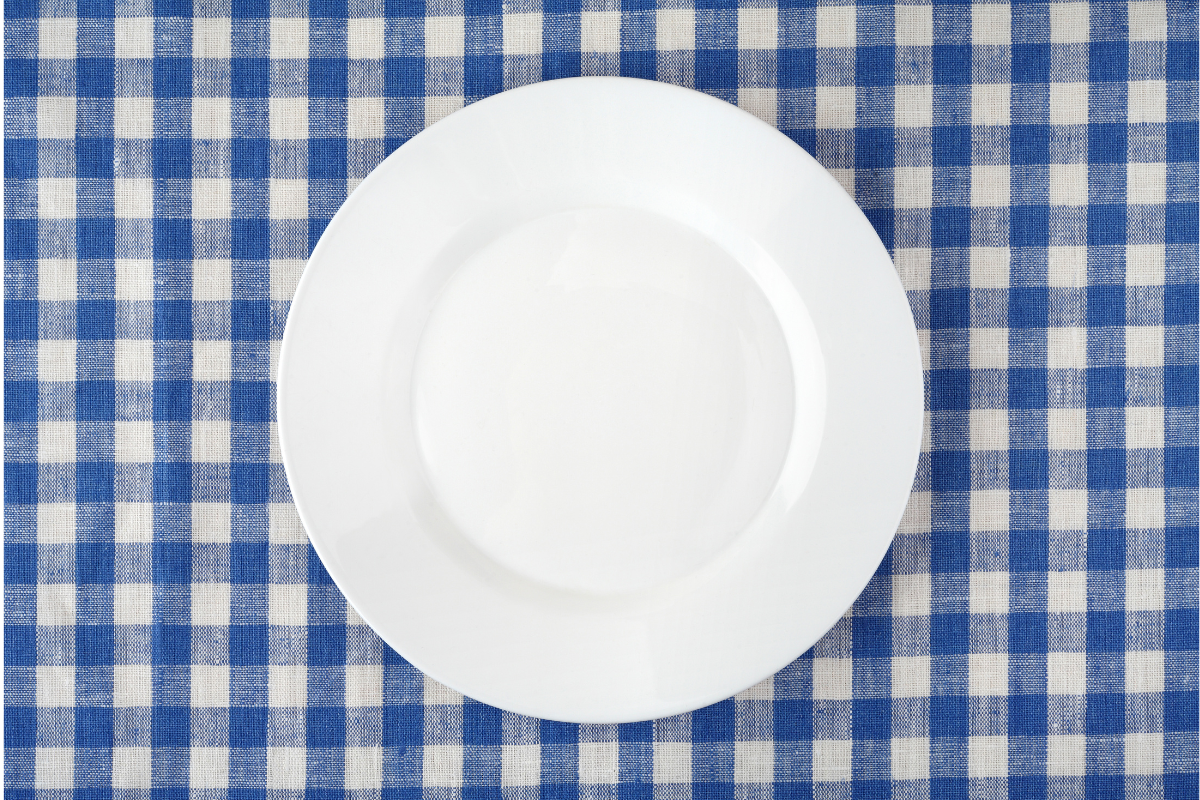It’s early Friday afternoon and I’m in my kitchen, rapidly chopping potatoes for Shabbat dinner. I’m working from home today, which means my potatoes can roast in the oven ‘til they’re golden, while I send emails and join Zoom meetings. As long as I get through my to-do list, everyone’s happy. Everyone, that is, but me.
I’m not sure when it happened, but roast potatoes have become a staple on our Shabbat menu. Each week, I prepare vast quantities of these crowd-pleasing carbs, with enough extra to eat cold for Saturday lunch. They’ve become my signature dish, too: I’m nominated to bring roast potatoes for extended family get-togethers, I make them when guests come over for barbeques, and deliver them to friends who are sitting shiva.
Today, I again force my knife through each potato until it splits open on the chopping board. And as I cut the spuds into equal-sized pieces – just as I did last week, last month, last year – the heat rises inside me. Words reverberate in my mind, like a meditation mantra gone awry: I hate making the potatoes. I hate making the potatoes. I HATE MAKING THE POTATOES.
Get Kveller's beautiful, step-by-step guide to experiencing Shabbat on your own terms. Order The Kveller Shabbat Guide here.
But I don’t stop.
On auto-pilot, I sprinkle the chunks with salt and turmeric powder, douse them in olive oil, and mix by hand. There’s not a trace of creativity involved, as if I’m an assembly line worker in a potato widget factory.
Hours later, we sit down to our meal. “Good potatoes, Lans,” says my husband, Ariel.
“Really good,” echoes Zara, my teenage daughter.
Asher, the youngest and by far the smallest, helps himself to the largest serving and later takes seconds.
I really do get pleasure from seeing my family devour the food I’ve prepared. But I’m tired of servicing other people’s needs. Oh, how I’d love someone else to roast potatoes for me, for a change.
So why don’t I occasionally hand the potato-roasting baton to my perfectly capable husband? Or tell my family that roast potatoes are no longer on our Friday night menu? Because I feel guilty. Because I want to please them. Because I should be looking after them. Admitting that I want a break would make me feel like a lousy mother: not compliant enough, not strong enough, not good enough.
Why? Because much of society still idealizes the woman who devotes herself to nurturing others; who silently acquiesces to whatever life dishes her up; who’s a domestic goddess, regularly bringing her family together with food. Especially if you’re a Jewish woman.
Every year, for example, Ariel’s extended family gather for lunch on Rosh Hashanah. A few weeks in advance, the spreadsheet listing our contribution to the meal is emailed to me. Not to my husband, the blood relative, but to me, my XX chromosome deeming me responsible for feeding the tribe.
This all makes me think of Nana Hannah.
My paternal grandmother, Nana Hannah, was the mother of nine and grandmother of 19. Almost every Saturday evening of my childhood, Nana’s children and grandchildren would congregate at her Bondi apartment, enticed by the promise of a Hannah Benjamin home-cooked feast. I didn’t like most of her Iraqi-Indian delicacies, but I never missed an opportunity to eat as many of Nana’s aloomakalas as possible. (Aloomakala is a hybrid word: aloo means potato in Hindi, and makala means fried in Arabic.)
When we arrived at her home, Nana would invariably be hunched over her stove, frying potatoes. She never kissed me hello or greeted me with a hug. Instead, she’d dunk her slotted spoon into the patila of boiling oil, fish out an aloomakala and wrap it in a paper towel before handing it to me. Careful not to burn my mouth, I’d gingerly bite into the golden crust until I reached the fluffy white inside. As soon as I’d finished, I’d quickly go back for another before they were all gone. So popular were Nana’s aloomakalas that there were never any leftovers.
As a child, I just expected that Nana’s aloomakalas would be waiting for me each week. I gave no thought to the time, planning and effort involved; to the selflessness with which Nana devoted herself to feeding all of us.
But now, some four decades later, I wonder: Did my grandmother ever get bored of peeling potatoes en masse each week? Did she always delight in preparing food for her many children and grandchildren? Or did she secretly wish that once in a while she could buy us French fries from the shop down the road – not nearly as good, but a passable substitute which would have been polished off just the same?
I’ll never know for sure how Nana Hannah felt about cooking for us each week – she died almost two decades ago, long before I’d even formulated such a question. But my guess is that she accepted the task without question, as part of her role as a good mother and a doting grandmother.
And although I never would want to have lived Nana Hannah’s life, part of me envies how she simply accepted her lot in life. Nana Hannah had an arranged marriage and was widowed at just 42, with nine children. I once asked Nana if she ever considered remarrying. “No,” she replied, without hesitation. “Not at all.”
On the day of Nana’s funeral – she lived to 91 – one of my aunts made a comment that has stuck with me. “They don’t make them like that anymore,” she said. And despite all my achievements, including my law degree, if I measure myself up against my oh-so-capable grandmother, I feel weak. A complainer. And a bit of a failure.
But here’s a secret: There are times when I actually enjoy roasting potatoes. When I’ve had a hard day at work, when I’ve had a disagreement with my daughter, when I’m spent after a morning of writing, the last thing I want is more challenge. In those moments, I happily slip into my potato-making comfort zone.
As I mindfully chop the spuds into equal-sized pieces, then gently mix them with salt, turmeric and olive oil, I’m safe. Competent. In control. The predictability and lack of creativity are exactly what I’m looking for.
Maybe I don’t want to stop roasting potatoes altogether. Maybe I just need some more freedom. To take on a little less responsibility. And to start putting myself first, at least some of the time.
So much has changed between Nana Hannah’s generation and mine. I have a smorgasbord of opportunities that weren’t available to my grandmother – to choose a partner, to build a career, to have financial independence. And yet, when it comes to women’s roles, a lot remains the same.
I love being a mother, a wife, a daughter. Yet I’m also an individual, with my own dreams and desires. And I don’t want to swallow the status quo like Nana Hannah had to.
As I finish writing this piece, it’s Friday afternoon again.
“I’m not roasting potatoes for dinner tonight,” I announce.
“Sure,” says Ariel.
“Fine with me,” says Zara.
“OK,” says Asher.
My family’s easy agreement takes me a little by surprise. There’s a small part of me that still feels guilty; that I’m somehow letting them down. But a much bigger part is thrilled to have that time to do whatever I please.
I’m certainly not stoic like my grandmother. But recently, I’ve been thinking that speaking up and saying “no” takes a different type of courage. Defying expectations – whether other people’s or our own –requires an interior armor to shield us from the judgemental voices that taunt us: Don’t be so selfish! You can’t do that! What a hopeless mother! And to carry on regardless, even when our bodies may flinch in opposition. Even when we fear we are neglecting our duties. Even when it means there won’t be any potatoes on Friday night.
It seems to me that it’s still a radical act for a woman to choose to prioritize herself.








